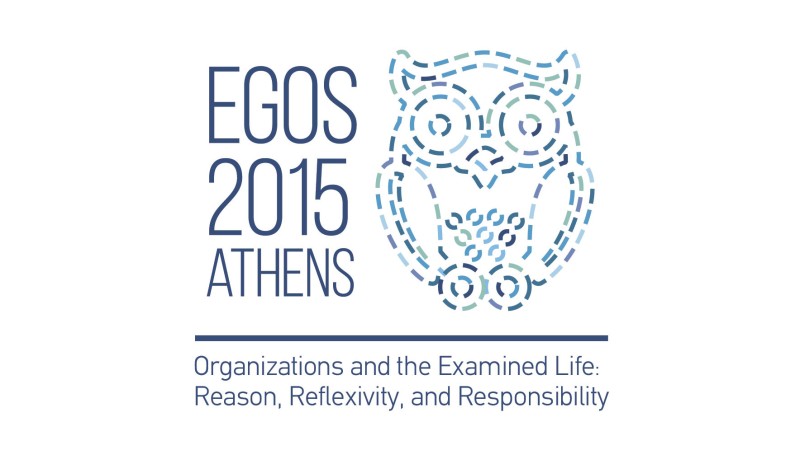Sub-theme 32: Risk, Ethics and Practical Wisdom in Project Management
Call for Papers
The governance of risk in the context of major (and mega) projects is a "hot topic" for a number of organizations
considering their huge impact on economy and society (Cantarelli et al., 2010). To date, there has been a predisposition for
theorizing "standard" risk management, based on a deterministic "if-then" lens and the modernist assumption made by standard
models that the rules of the game are stable (Toulmin, 1990). These approaches of risk are rooted into normative ethics –
deontology (compliance) and/or consequentialism ("getting things done"). Whilst this maybe sufficient when the future is clear
enough to develop valid forecasts, in many cases this is not the case, and a more fundamental rethinking of risk and its management
is necessary.
Even if the most uncertain contexts contain some knowable information, intensified ambiguity and
uncertainty would suggest we need to go beyond standard approaches (Sandberg & Tsoukas, 2011). We argue that more holistic
approaches to risk management and its societal impact (Beck, 1992) are required. One such approach is grounded in Aristotelian
philosophy, which conceptualises actions as involving "projection in the future", i.e. time, irreversibility, indetermination
and contingence, inherent uncertainty and therefore risk (Maguire & Hardy, 2013). The Aristotelian approach invites us
to understand decision-making and actions as underpinned by an ethic of character, shifting the focus from rules to a dialogue
supported by practical wisdom: "phronesis" (Flyvbjerg, 2001). In other words, a move from a "theory of the game"
which aims to make playing the game simpler in a complex world, to a "theory of the rules of the game", which aims to influence
the rules of the game through debate.
This sub-theme builds upon the discussions held in the Organization
Studies Special Issue on "Organizations and Risk in Late Modernity" (Gephart et al., 2009), particularly "the ethical
implications of risk for individuals, organizations and society" (Miller, 2009: 170; Toulmin, 1990). We would encourage conceptual
and empirical papers, from different theoretical lenses, exploring and deliberating about the relations between governance
of risks, risk management practice and ethics. The following issues offer a starting point and illustrate potential areas
of interest.
Understanding individual, organizational and institutional risk perception and behaviour
- What are the drivers of human behaviour associated with non-technical risks?
- How are complexity and uncertainty related to risk perception?
- What are the relations between ethical perspectives and standards and practice, for instance deontology and its compliance logic, consequentialism and its focus on getting this done, both focusing on rules in contrast to phrónêsis (practical wisdom) and the role of dialogue?
Governing
risks
- Should governance of risk be about a "theory of the game", making the complex world simpler in playing the game, or a "theory of the rules of the game", influencing and challenging the rules of the game constitutive of "standards of excellence"?
- How to adopt a holistic and integrative approach to risk governance?
- Do we need new contractual arrangements to better cope with pluralistic or conflicting stakeholders ethical perspectives of risk?
Managing risks
- Which tensions and contradictions between evidence-based vs. judgmental assessment arise in risk management decision-making?
- Can practical wisdom offer a possible way for holistic risk management, and how?
- What are and how to develop organizational conditions for resilience and anti-fragility?
References
- Beck, U. (1992): Risk Society: Towards a New Modernity. London: SAGE Publications.
- Cantarelli, C.C., Flyvbjerg, B., Molin, E.J.E., & van Wee, B. (2010): "Cost overruns in large-scale transportation infrastructure projects: Explanations and their theoretical embeddedness." European Journal of Transport and Infrastructure Research, 10 (1), 5–18.
- Flyvbjerg, B. (2001): Making Social Science Matter. Cambridge: Cambridge University Press.
- Gephart, R.P., Van Maanen, J., & Oberlechner, T. (2009): "Organizations and risk in late modernity." Organization Studies, 30 (2–3), 141–155.
- Maguire, S., Hardy, C. (2013): "Organizing processes and the construction of risk: a discursive approach." Academy of Management Journal, 56 (1), 231–255.
- Miller, K.D. (2009): "Organizational risk after modernism." Organization Studies, 30 (2–3), 157–180.
- Sandberg, J., & Tsoukas, H. (2011): "Grasping the logic of practice: theorizing through practical rationality." Academy of Management Review, 36 (2), 338–360.
- Toulmin, S. (1990): Cosmopolis: The Hidden Agenda of Modernity. Chicago: The University of Chicago Press.


